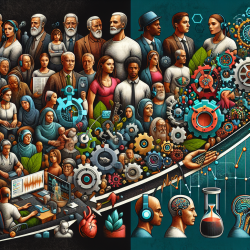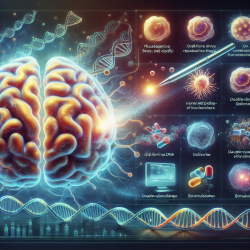Unlocking the Power of Meaning: Transforming Suffering into Flourishing
In the evolving landscape of mental health, there is a growing recognition that the traditional medical model may not fully address the complexity of human suffering. The research article "Varieties of Suffering in the Clinical Setting: Re-envisioning Mental Health Beyond the Medical Model" by Wong and Laird (2023) argues for a broader approach to mental health, one that integrates existential positive psychology (EPP) to better understand and address the multifaceted nature of suffering.
Existential Positive Psychology (EPP) offers a framework that goes beyond the limitations of the Diagnostic and Statistical Manual of Mental Disorders (DSM-5), which often pathologizes normal human experiences. Instead, EPP views mental illness as a deficiency in coping skills and the ability to meet fundamental needs for meaning, hope, and love.
Integrative Meaning Therapy: A Path to Healing
Integrative Meaning Therapy (IMT) is a therapeutic approach that focuses on helping individuals find meaning in their experiences, particularly in the face of suffering. This approach empowers clients to transform suffering into opportunities for growth and fulfillment. Here are some key aspects of IMT:
- Meaning-Centered Coping: Encourages individuals to find lessons and benefits from their suffering, reframing it into a manageable and positive experience.
- Spiritual and Existential Support: Incorporates spiritual beliefs and existential questions to provide a deeper understanding of one's purpose and resilience.
- Holistic Wellbeing: Focuses on the interconnectedness of physical, emotional, social, and spiritual health to achieve total wellbeing.
Case Studies: Real-Life Applications
Consider the case of Jackie, a woman who struggled with depression due to a lack of fulfillment in her life. Through meaning therapy, she discovered her passion for creative work and redefined her life purpose, which alleviated her depression. Similarly, Oscar, a successful medical professor, found peace by embracing Stoic philosophy and focusing on what was within his control, despite personal and familial challenges.
Embracing Suffering for Sustainable Wellbeing
Research shows that suffering can be a catalyst for personal growth and sustainable wellbeing. By adopting a meaning-centered mindset, individuals can transform their suffering into a source of strength and resilience. This approach not only reduces the stigma associated with mental illness but also fosters a holistic view of wellbeing that includes spiritual and existential dimensions.
Practitioners are encouraged to explore the principles of EPP and IMT in their practice, integrating these frameworks to provide more comprehensive care. By doing so, they can help clients navigate the complexities of life with greater resilience and fulfillment.
To read the original research paper, please follow this link: Varieties of suffering in the clinical setting: re-envisioning mental health beyond the medical model.










